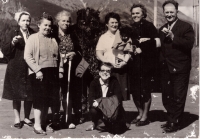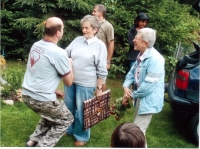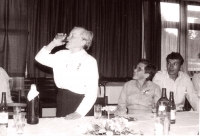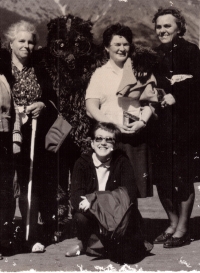When the father was taken away by the STB, the mother just cried. He returned in a year in poor health

Stáhnout obrázek
Marie Fritschová was born on February 25, 1945 in Polička in the family of a seamstress and a storekeeper. At an early age, she underwent two eye surgeries and spent five years of schooling at a boarding school for the visually impaired in Prague. In 1949, Father Josef Fritsch took part in a revolt against the arrest of the parish priest Jaroslav Daňek, whom the members of the StB wanted to take away. Among other things, the parishioners overturned a police car. About ten people ended up in prison. Josef Fritsch was sentenced to one year in prison. He executed the sentence in the Jáchymov uranium mines. He returned in poor health and died in 1954. The family suffered from an existential shortage and an unfavorable regime. The older sister was not even allowed to go to high school. The witness witnessed the Warsaw Pact invasion of Czechoslovakia in August 1968. She worked in the telephone exchange of the Polička Hospital for over thirty years. She studied Esperanto and practiced yoga, which she later taught. She participated in the March of Tolerance and Freedom in August 1989. On November 25, she experienced one of the largest anti-communist demonstrations in Letná, Prague. In 2020, she retired and lived in Polička.



